Abby J. sent in some photos she took at Toys ‘R’ Us of a bunch of classic board games that are now marketed specifically to girls. We know they’re for girls because they’re all pink:

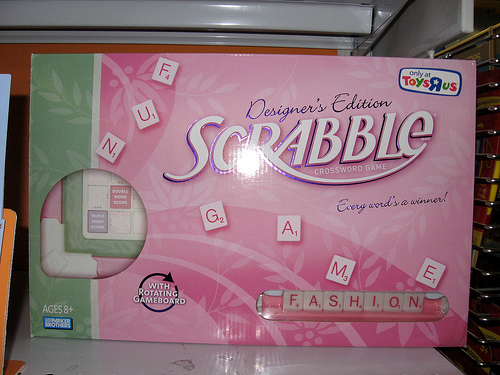
Of course the girls’ version of Scrabble would spell “fashion.” I assume the boys’ version spells “motorcycle” or something of the sort…though probably with fewer letters, I guess.
The Monopoly game (called the Boutique Edition) looks like a jewelry box:

I don’t know what Mystery Date is all about–I mean, I can guess, but I’m not familiar with the game, and not actually sure I’d want to encourage kids to go on mystery dates, but whatever. Both Abby and I found the pink Ouija board odd. I didn’t know they really still sold them. My grandma came across an old one when they were cleaning out my great-grandma’s stuff a couple of years back and she took it and gave it to my teen-aged cousin. My aunt took great offense and sent it back. My grandma, who is a devout Christian, took offense at my aunt taking offense (and implying that Grandma was giving her grandchildren satanic toys) and now keeps it around and lets kids play with it at her house. She also declared my aunt “no fun” and “too churchy.” If you knew my grandma, or had ever sat there and watched her call out to Jesus to help her find her missing spatula (he complied and made it appear in the drawer where she always keeps the spatulas), you would understand why I nearly choked on my food when she referred to someone else as “too churchy.” Now she’s decided that the Harry Potter movies are not, as so many people she knows had told her, satanic but are instead quite funny.
Anyway, that’s a long rambling unimportant point for a post that just illustrates how much we identify girlhood today with pink and feel the need to make gender-specific version of games where a single version seemed to work perfectly well in the past.
Reader Rachel sent in this photo she took of Legos being clearly marked as “boys’ toys”:

NEW! Sara P.-S., Liz, and Danielle F. sent us links to the new “girlz” version of the PSP (Playstation Portable) because, as Sarah says, it is apparently so “skewed towards boys that they have to specifically advertise the fact that girls [can] play with it”:

NEW (Apr. ’10)! Sunlight Snow sent in a version of Jenga aimed at girls called “Girl Talk” Jenga. Not stopping at the pinkification of the game, the producers decided to add sharing and gossip to it. Each plank now offers a question that girls are supposed to discuss. Apparently precipitous balancing and impending collapse is not fun enough, girls must add desperate crushes and dreams of becoming a veterinarian!
Gwen Sharp is an associate professor of sociology at Nevada State College. You can follow her on Twitter at @gwensharpnv.


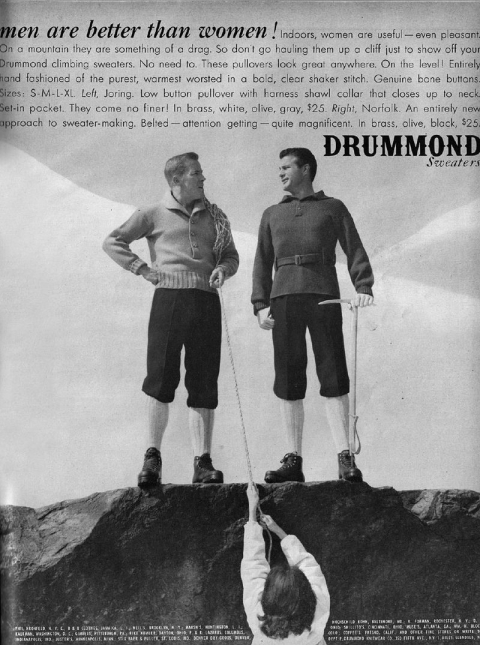
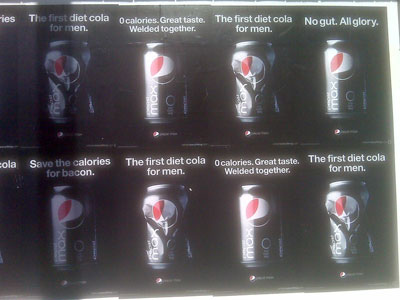








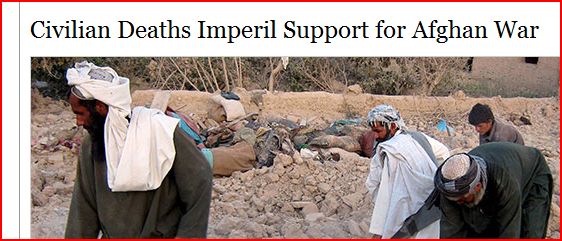
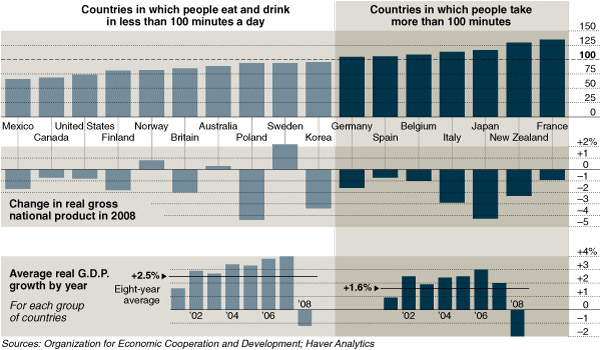 As before, the statistics are far from conclusive, but the data continues to invite a discussion about food and culture.
As before, the statistics are far from conclusive, but the data continues to invite a discussion about food and culture.